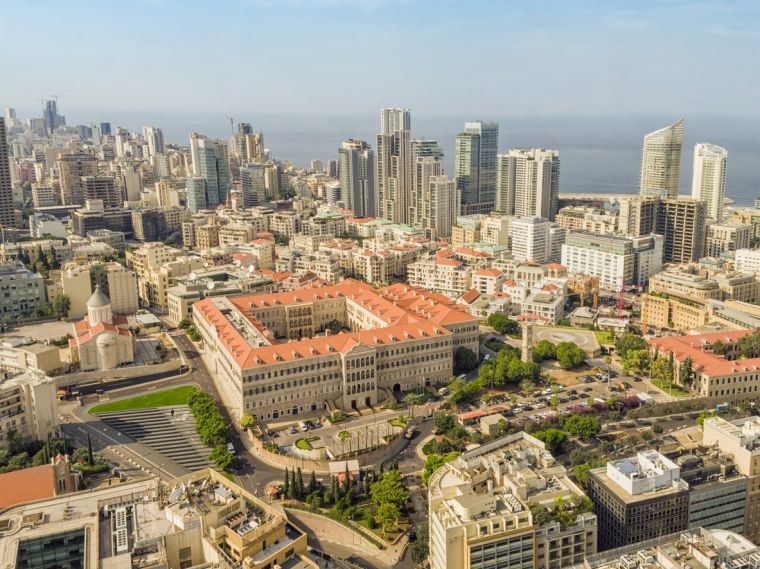The deliberate and slow eradication of Lebanon's Christians must end

Lebanon's Christians face an existential crisis unprecedented in its gravity since the 1920 creation of Greater Lebanon and the subsequent independence in 1943 of the Republic of Lebanon. Even the bloody and destructive civil war between 1975 and 1990 did not threaten the very existence of the Christian community to the extent that the Islamic Republic of Iran — and its armed Lebanese proxy, Hezbollah — has.
In a report published on June 2, 2022, entitled "The Invisible Jihad: The Treatment of Christians by Iran Proxies," four Arab countries under Iran's de facto control are assessed as to how their Christian communities have been impacted. The report reveals that the ideology of Khomeinism, Iran's official state creed, does not tolerate any semblance of pluralism and has set long-term plans to eradicate it.
In the case of Lebanon's Christians, this eradication is mapped out with calm, calculated, and rational deliberation to unfold gradually over the years. It hinges on creating the conditions that will induce open-ended emigration of Christians out of the country. The report explains: "Iran's proxy militias in Lebanon, Iraq, Syria, and Yemen have played a significant, though largely unrecognized, role in the dramatic decline of Christians in the region. Guided by the theocratic regime's vision of Muslim demographic purity, they labored to create conditions that forced the Christians out." In place of the wholesale murder of Christians, Iran's strategy has opted for "the alternative policy of eliminationism through coercive [e]migration." The report continues: "Hezbollah's policy has followed Iran's successful blueprint of demographic engineering ... [and] these efforts have inspired the regime's proxy militias in the region."
One only needs to connect the dots of Lebanon's successive recent calamities to see Hezbollah's finger in each one. How else are we to understand the unwavering protection offered by Hezbollah to Lebanon's corrupt ruling-class mafia that is responsible for the impoverishing of Christians? And what about the induced political paralysis enforced by Hezbollah with no relief in sight? Or Hezbollah's prevention of any serious reforms being implemented that would start to attract the Arab and foreign capital needed to begin to rescue the collapsed country? No force except Hezbollah is persistently thwarting Lebanon's chances to embark on the slow road to recovery.
For years a false narrative has gripped Christians in Syria and Lebanon. Given the stark choice between the regime of Bashar Assad and the Islamic State, Christians are better off siding with Assad who will protect them from ISIS. When Christians and other Lebanese cheered the combined efforts of Hezbollah and the Lebanese Armed Forces to subdue ISIS in the country, they didn't realize at the time that they were in fact trading the proverbial frying pan for the fire. Such ruinous choices boiled down to specific leaders ingratiating themselves with Hezbollah — their new version of dhimmitude — for their own selfish purposes of acquiring power and money.
Two successive days in the 20th century mark the apex of international measures to uphold and defend human dignity: December 10, 1948, when the Universal Declaration of Human Rights came out, and December 9, 1948, when the Convention on the Prevention and Punishment of the Crime of Genocide was proclaimed. Article II, section (c) of this Convention defines genocide in broad terms as follows: "Deliberately inflicting on the [targeted] group conditions of life calculated to bring about its physical destruction in whole or in part."
This is a direct reference to instances of the gradual and premeditated elimination of a specific community, as is happening in the case of Lebanon's Christians at the hands of Hezbollah. Indeed, Hezbollah's facilitation of the recent maritime agreement between Lebanon and Israel regarding the extraction of undersea energy reserves suggests armed confrontation with Israel is less of a priority for the Iran-backed militia than to rid Lebanon of its Christian community.
If Iran's own people are openly rejecting the regime that is oppressing them, by what logic will Lebanon's communities, specifically the Christians and the Sunnis, accept to live under the diktat of Iran's proxy, Hezbollah? So far, international, and specifically Western, responses to Lebanon's deepening crisis have proven woefully inadequate; whether it is the non-starter mantra of "implement reforms before we can help" directed at the corrupt ruling class, or the oft-repeated "Lebanon is on no one's radar, so you'll have to find solutions to your predicament on your own."
Western and Arab influence in the Eastern Mediterranean is eroding irrevocably the more Iran continues to entrench itself. With so much at stake, both the West and the Arab states can certainly do much better to contain and begin to reverse, Lebanon's slide towards the abyss.
Habib C. Malik is Senior Fellow on Lebanon and Middle Eastern Christians at The Philos Project where he also works at the Philos Charles Malik Institute.











